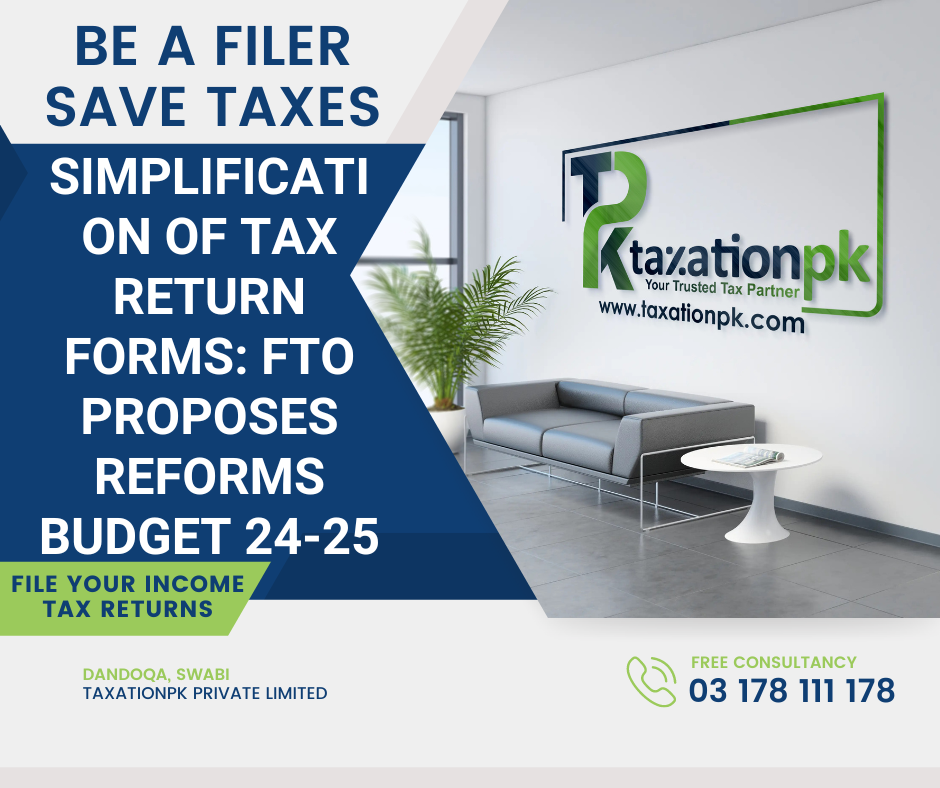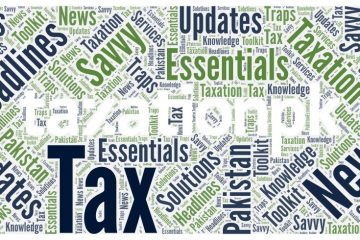The Federal Tax Ombudsman (FTO) has unveiled a series of proposals aimed at simplifying and modernizing Pakistan’s tax system. These recommendations, part of the upcoming 2024-25 budget deliberations, focus on making tax compliance easier for businesses and individuals while fostering growth in key sectors.
Simplifying the Burden for Smaller Entities:
A cornerstone of the FTO’s proposals is the introduction of a simplified tax return process for small businesses, Associations of Persons (AOPs), and individual business owners. This tailored approach aims to alleviate the administrative burden often associated with tax filing, encouraging compliance and reducing costs for smaller entities.
Beyond Streamlined Returns: Broad Tax Policy Changes:
The FTO’s vision extends beyond simplifying filing procedures. They advocate for significant changes in tax policies and laws to support various sectors, including:
- Exporters: Measures to encourage and incentivize exports are proposed.
- Real Estate: Revisions to policies hindering real estate growth, such as section 7E (tax on deemed income) and the 15% capital gains tax, are recommended. Additionally, reducing high stamp duties and advance taxes on property transactions is advocated.
- Startups: Extending the current 100% tax credit for startups beyond the initial three years and offering a reduced tax rate in subsequent years are proposed to foster a more supportive environment for young businesses.
Combating Fraud and Encouraging Transparency:
The FTO recognizes the issue of fraudulent invoicing and proposes stringent controls on “fake” or “flying” invoices. Additionally, they recommend a 100% input tax adjustment system to ensure transparency and fairness in tax calculations.
Relief for Taxpayers and a More Efficient System:
The FTO’s proposals target several areas to improve the overall taxpayer experience:
- Reduced Litigation: Streamlining the appeals process through faster resolution of disputes and revising appeal filing fees to make them more reasonable.
- Modernized Assessment Procedures: Setting time limits for completing tax assessments and audits to reduce delays and harassment of taxpayers.
- Faster Refunds: Expediting the income tax refund process by setting a 30-day limit for electronically transferring refunds and automating processing for smaller amounts.
- Reduced Sales Tax Hurdles: Removing section 8B of the Sales Tax Act to eliminate unnecessary limitations on claiming input tax and streamlining the refund process. Expanding the list of export-oriented sectors to acknowledge high-performing industries is also proposed.
Supporting the Salaried Class in Inflationary Times:
Recognizing the strain of inflation on salaried individuals, the FTO proposes:
- Increased Tax Exemption Threshold: Raising the minimum income threshold for tax exemption from Rs 600,000 to Rs 1,200,000 to alleviate the financial burden on salaried workers.
- Rebates for Essential Expenses: Providing tax rebates for essential expenses like utilities, further easing pressure on household budgets.
Building a Supportive Environment for Startups:
The FTO acknowledges the importance of nurturing startups and proposes extending the benefits currently enjoyed during the initial three years. This would involve offering a reduced tax rate for startups beyond the initial period, aligning them with the already existing reduced rate for small businesses (20%).
The Road Ahead: A More Equitable and Efficient Tax System
The FTO’s comprehensive proposals aim to create a tax system that is:
- Simpler and Easier to Navigate: Streamlined processes for filing and a clear legal framework aim to reduce administrative burdens and confusion.
- Fair and Transparent: Measures to combat fraud and ensure accurate assessments promote a level playing field for all.
- Growth-Oriented: Proposals designed to support specific sectors, like exporters and startups, aim to stimulate economic activity.
- Responsive to Taxpayer Needs: Faster refunds, reduced litigation, and addressing the challenges of the salaried class all point towards a more taxpayer-centric approach.
The FTO’s proposals offer a roadmap for a modernized tax system in Pakistan. As budget discussions unfold, these recommendations will be a key point of consideration. The final outcome will determine the future landscape of taxation in Pakistan, impacting businesses, individuals, and the overall economic environment.






